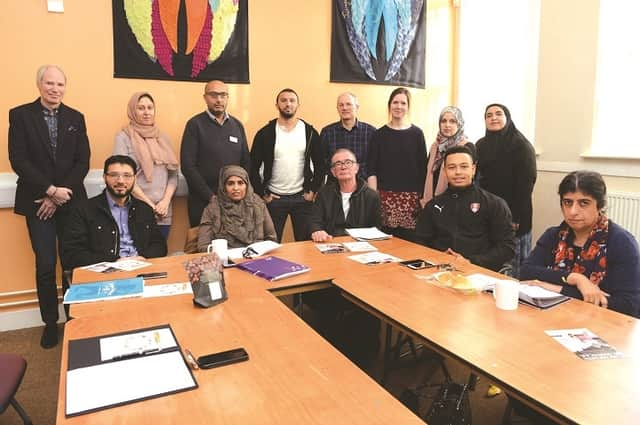Safety fears and work worries of minorities in Rotherham revealed


The depressing claims were made at a conference on social and work inequalities, which painted a grim picture of a divided town where some people from minorities suffer deprivation, disadvantage and intimidation.
The UK Race and Europe Network (UKREN) conference at the Unity Centre in St Ann’s last Thursday noted the fallout from Rotherham’s child sex abuse scandal.
Advertisement
Hide AdAdvertisement
Hide AdIt revealed how those from minority backgrounds were more likely to live in overcrowded housing, struggle for good work and suffer from poor health.
Voluntary sector workers shared statistics and personal experiences, offering views on racial inequality and how to improve it.
They were asked to give their views anonymously on why there were such ethnic disparities in education, work, housing, justice and health - and how to tackle them.
Many of those who took part said a series of protest marches over child sex abuse - the last in February this year -were still having an impact.
Advertisement
Hide AdAdvertisement
Hide AdAn inability to keep marchers out of the town continued to cause fear and frustration, it was claimed, and women from minority backgrounds were afraid to walk outdoors, run or use fitness facilities, leading to worse health.
The conference came a month after a Cabinet Office report revealed how “experiences and outcomes often vary with the ethnic group people belong to”.
A 2011 study ranked Rotherham as the third most racially unequal district in England and Wales - up from 13th in 2001 - and the eighth worst district for racial unemployment inequalities - up 11 places in ten years.
The meeting was chaired by Zlakha Ahmed for Rotherham charity JUST Yorkshire, which challenges racial inequalities in public life.
Those attending made claims including:
Advertisement
Hide AdAdvertisement
Hide Adq School exclusions were high among black and minority ethnic (BME) children, amid claims of racism and students being called “groomers”, which led to fights.
q Cases like the 2015 race hate murder of 81-year-old Mushin Ahmed have left children fearful.
q Those living in overcrowded houses, especially common in BME and immigrant families, have no chance or incentive to study and low expectations mean they are often discouraged from aiming for university.
q Black African residents are particularly under-employed, probably because many are asylum seekers.
Advertisement
Hide AdAdvertisement
Hide Adq White people considered the town centre a “no-go area” on Asian market days.
q Minority group families have been repeatedly forced out of mainly-white areas.
q Views had been raised that BME families “milked the system”.
q Access to justice for minorities was impaired by mistrust of the police, a problem heightened following the 2016 “Rotherham 12” trial, which saw Asian men put on trial over disorder in Wellgate following a Britain First protest march.
Advertisement
Hide AdAdvertisement
Hide Adq Official hate crime figures are underestimated as people distrusted the police.
q Mental health had suffered under national scrutiny of Rotherham’s minorities.
q Charities best placed to combat all of these issues are under-resourced by local and national government.
Delegates’ views will be presented in a report by UKREN to the Cabinet Office and other government departments, next January.
Advertisement
Hide AdAdvertisement
Hide AdUKREN co-ordinator Alan Anstead said: “I’m hopeful that we will be able to show central government that a one-size-fits-all solution doesn’t work.”
Mrs Ahmed said: “We were able to hear people’s real experiences and find out what was happening on the ground.”